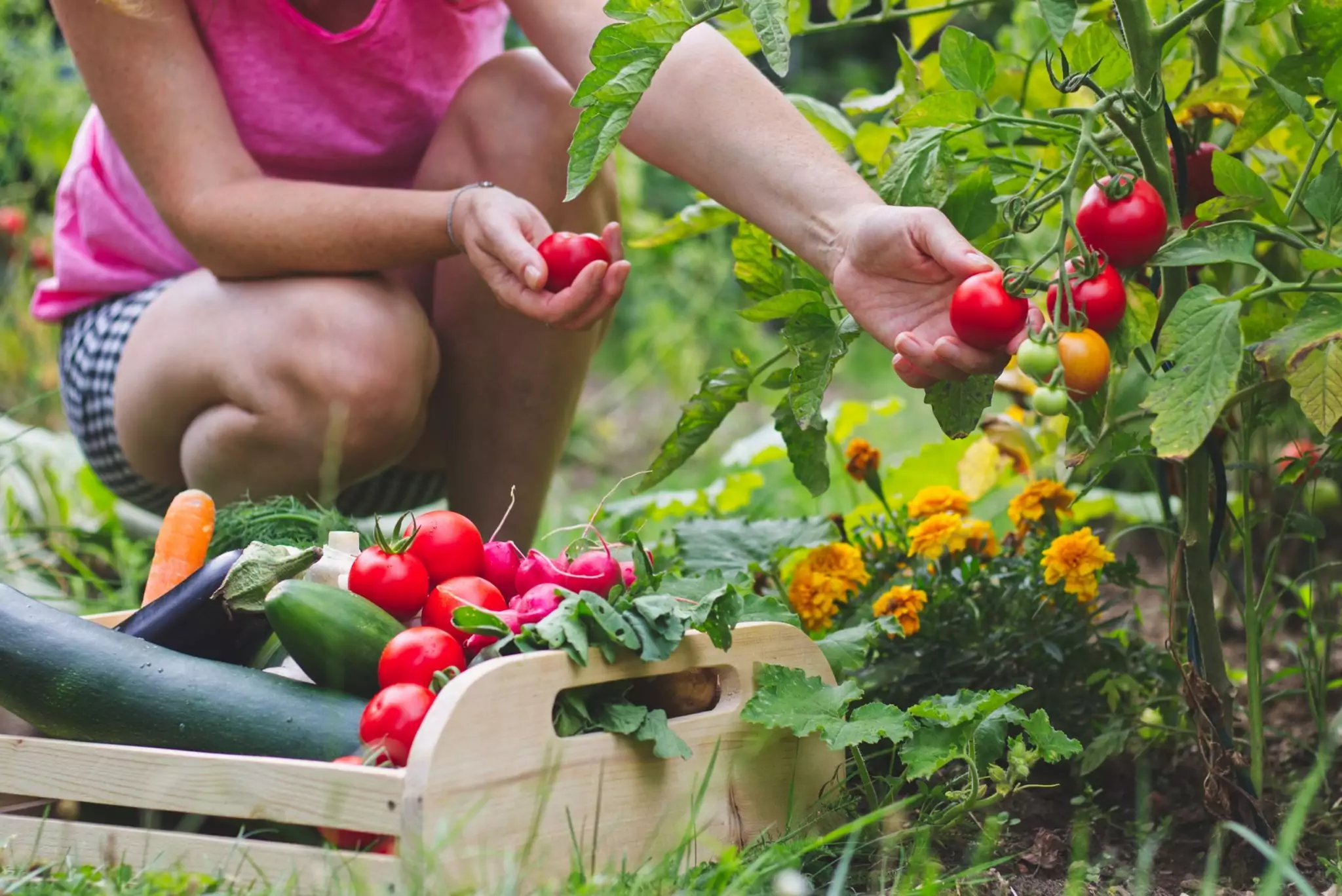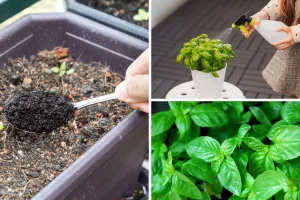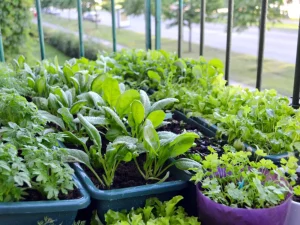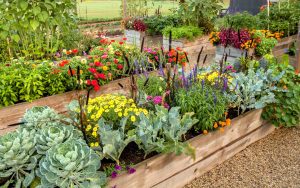People want to take back control over what they eat because they don’t always know where their food comes from and worry about pesticides and other chemicals. Organic vegetable gardening is a fun and satisfying hobby that not only provides you with fresh and healthy food, but also brings you closer to nature. If you’ve never gardened before or want to switch to organic methods, this beginner’s guide will show you how to start your own organic vegetable garden.
Why Choose Organic Vegetable Cultivation?
Before we discuss how to start growing a garden, let’s talk about why growing organically is a good choice.
1. Healthier Eating
Organic vegetables are grown without the use of chemical pesticides, herbicides and fertilizers. This means that the food you grow at home does not contain dangerous residues, giving you healthy and nutritious food.
2. Environmental Benefits
Organic growing methods prioritize sustainability and seek to work with nature rather than against it. By not using chemicals that are harmful to the planet, you contribute to the protection of biodiversity.
3. High Cost Performance
Growing your own vegetables can save you money in the long run, especially when you compare it to the cost of buying organic vegetables at the store. You will also have to go to the supermarket less often, which will make your life easier.
4. Satisfaction with Yourself
Taking care of plants and watching them grow gives you a deep sense of satisfaction. Gardening gives you the opportunity to connect with nature, reduce stress and improve your overall health.
How Do You Start Growing an Organic Vegetable Garden?
1. Choose the Right Place
Finding a good place to start an organic food garden is the first step. Here are some things to consider:
Sun: Most plants need at least six hours of direct sunlight per day. Choose a location that receives full sun all day.
Get Water: Make sure water is easily accessible, as vegetables need regular and consistent water.
How Close: Your garden should be close to your house so that you can easily care for it and get food from it.
2. Prepare the Soil
A good organic garden starts with healthy soil. How to prepare dirt:
Check the Ground: Have a soil test performed to find out the pH and nutrient content of your soil. You will be able to find out what your country needs.
Amend the Soil: Based on the results of a soil test, add organic matter such as compost, well-rotted manure or an organic soil conditioner to improve soil structure and fertility.
Down to the Ground: Use a cultivator or shovel to work the amendment deep into the soil. The goal is to use materials that are loose and well-drained.
3. Plan the Shape of Your Garden
To have a good vegetable garden you need to plan. When planning your garden, consider the following:
Changes in Crops: Plan to rotate crops each season to avoid depleting the land and avoid pest problems.
Space Needed: Different types of vegetables have different space needs. Read the label on the seed packet or plant to find out what the spacing should be.
Planting with Others: Some plants grow better when placed next to other plants. For example, peppers and basil go well together.
Bed on Stilts: If your soil is not very good or does not drain well, you may want to build raised beds for your garden. They give people more power over their country.
4. Choose Organic Seeds or Seedlings.
Choose organic seeds or plants from responsibly produced sources. Chemical-free, organic varieties keep your garden running smoothly.
5. How to Grow Vegetables
When planting, the following rules should be followed:
How Long: Plant vegetables based on the weather in your area and the best time to plant each type.
How Far: Follow the seed package instructions for placement depth. In general, the depth of the seed should be two to three times the width of the seed.
Get the Method: Water freshly planted seeds or seedlings regularly. Keep the soil moist, but don’t let it get too wet.
6. Mulching and Weeding
Applying mulch around food plants helps keep the soil moist, prevents weeds from growing and keeps soil temperatures even. Use straw, wood chips or compost as biodegradable mulch.
7. Natural Ways to Get Rid of Insects and Diseases
Organic gardening uses natural methods to control pests and diseases:
Planting together with Others: If you plant certain plants near your vegetables, they can deter pests. Marigolds, for example, repel insects.
Manual Picking: Check your plants regularly for signs of pests and diseases, and if you find any, remove them by hand.
Good Mistake: To control the number of pests in your garden, introduce natural enemies such as ladybugs and lacewings.
Natural Treatment: Use neem oil, garlic or soap to make organic pest control products.
8. Maintenance and Watering
Proper watering is very important for the health of your plants. If you water your garden in the morning or evening, less water is lost into the air. Use a water hose or drip irrigation to conserve water and keep the leaves dry, which prevents disease growth.
As part of regular care, you should prune, secure, and watch for signs of nutritional deficiencies or insects. Solve the problem immediately and keep your plants healthy.
9. Provide Food and Eat It
When your vegetables are ready to pick, follow these steps:
How Long: If you want to get the best flavor and most nutrients from your vegetables, pick them when they are at their best.
How to Do that: If you don’t want to damage the plant, use a sharp knife or scissors. Tomatoes and cucumbers should be gently pulled or turned.
Have Fun: Make delicious meals from the food you grow and enjoy the fruits of your hard work. Usually organic vegetables have a stronger taste.
Conclusion:
Organic vegetable gardening is not only a satisfying and long-lasting hobby, but it is also a step toward a healthier, more connected lifestyle. By following these tips for beginners, you can create a thriving organic vegetable garden that provides you with fresh, healthy food and a better understanding of nature. So roll up your sleeves, get your hands dirty and enjoy the many benefits of organic growing in your own backyard.
FAQs:
1. What exactly is organic gardening?
Organic gardening is a method of growing plants without the use of synthetic pesticides, herbicides or chemical fertilizers. It relies on natural processes and sustainability to cultivate a healthy and productive garden.
2. Do I need a lot of space to start an organic vegetable garden?
No, you don’t need a big garden. You can start an organic vegetable garden in a small space, such as a balcony, or even indoors with containers or raised beds.
3. Are organic vegetables more expensive to grow than traditional vegetables?
While there may be initial costs for soil amendments and tools, growing organic vegetables can save you money in the long run, especially compared to buying organic produce at the store.
4. How can you control pests and diseases in an organic garden without using chemicals?
Organic pest control methods include companion planting, attracting beneficial insects, hand-picking pests and using homemade organic remedies such as neem oil or garlic spray.
5. What are the environmental benefits of organic gardening?
Organic gardening promotes sustainability, reduces the use of synthetic chemicals and supports biodiversity. It helps improve soil, air and water quality, making it an environmentally responsible choice.



